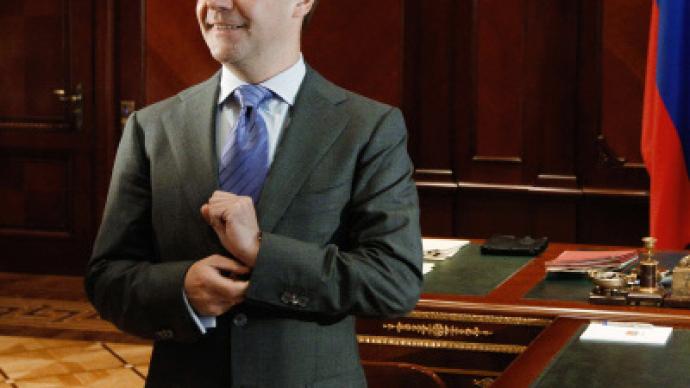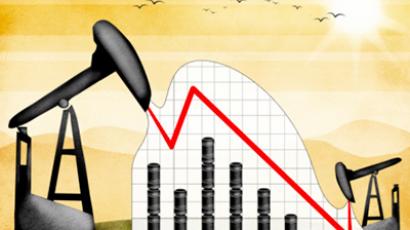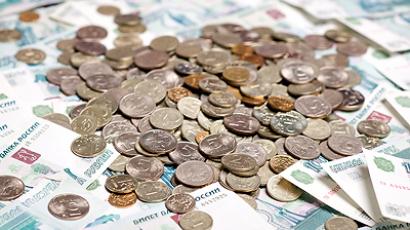President Medvedev outlines major budget themes

The Budget Message of the Russian President Dmitry Medvedev has outlined 12 key areas of budget policy for 2012-2014 with major attention paid to modernization, boosting economic competitiveness, and long-term development.
"Today I have signed a budget address on policy for the next three years. This document summarizes instructions, which are already being implemented by state bodies and includes an entire array of additional measures, which, in my eyes, are realistic at present. New three-year budget should facilitate the launch of new growth model, reduce risks and support macroeconomic stability. Working from this, it is necessary for us to carry out systemic measures for an entire series of areas, 12 of them."The 12 key areas include reducing the government role in the economy and increasing market self regulation, decentralizing budget policy, increasing taxes on oil and gas companies, and alcohol and tobacco industries, increasing revenue from federal property sales, increasing property taxes, enhancing the impact of government spending, funding all social obligation commitments, reducing budget dependence on oil and gas revenues, integrating budget planning into national strategic development, restricting oil and gas revenues and limiting budget deficits, and improving the pension and compulsory social insurance system.Business RT spoke with Natalia Orlova, Chief Economist at Alfa-Bank about the President’s plans RT: Were there any surprises in the President’s speech?NO: “Well I would say, in a way, the surprise for me, at least, was that ahead of the election Dmitry Medvedev has really stated that we have to think about higher taxation in a number of sectors – in oil and gas sector, of course, also the introduction of the taxation on real estate. So I think this is definitely an unusual speech for the pre election period.”RT: “So about reducing the social tax, first of all. How much of a burden do you think that will be for the budget?NO: “Well I would say the cut of the social tax to the level of 30% for large companies, and level of 20% for smaller companies, will potentially bring the drop of revenues to about 400 billion roubles a year in 2012. So this is relatively significant. Of course this will suggest that if oil prices would go higher Russia would still do well, but this will definitely increase the sensitivity to oil prices, so this is bad news. But I think this shows that President Medvedev would like to address the concerns of the business community and I think this is positive.”RT: Alexei Kudrin keeps saying that Russia is always increasing budget outlays. Do you think this has to stop?NO: “If you are looking for the execution of the first two months of this year you can see that the increase of the expenditure side was 10% year on year, while for example the general trend for 2010 provided an increase of around 15% so there is a slower rate of expenditure growth. But its true that Medvedev has mentioned in his speech that there is the indexation of pension, to increase payments in social areas, of course I think the budget will not be able to stop the complete indexation.”RT: Increasing taxes on the oil and gas sector. How much of a burden is that for companies in this industry?NO: “It is true, that we have not heard the specific proposal, just the general statement that this tax burden has to go up. It is also true that the oil sector doesn’t run a very high debt burden, as opposed to the rest of the Russian economy, can potentially survive under high taxation. But the problem is also that definitely in this case it will invest less and thus will limit the increased potential export capacity. So the Russian cabinet has to think how to resolve this dilemma.”














